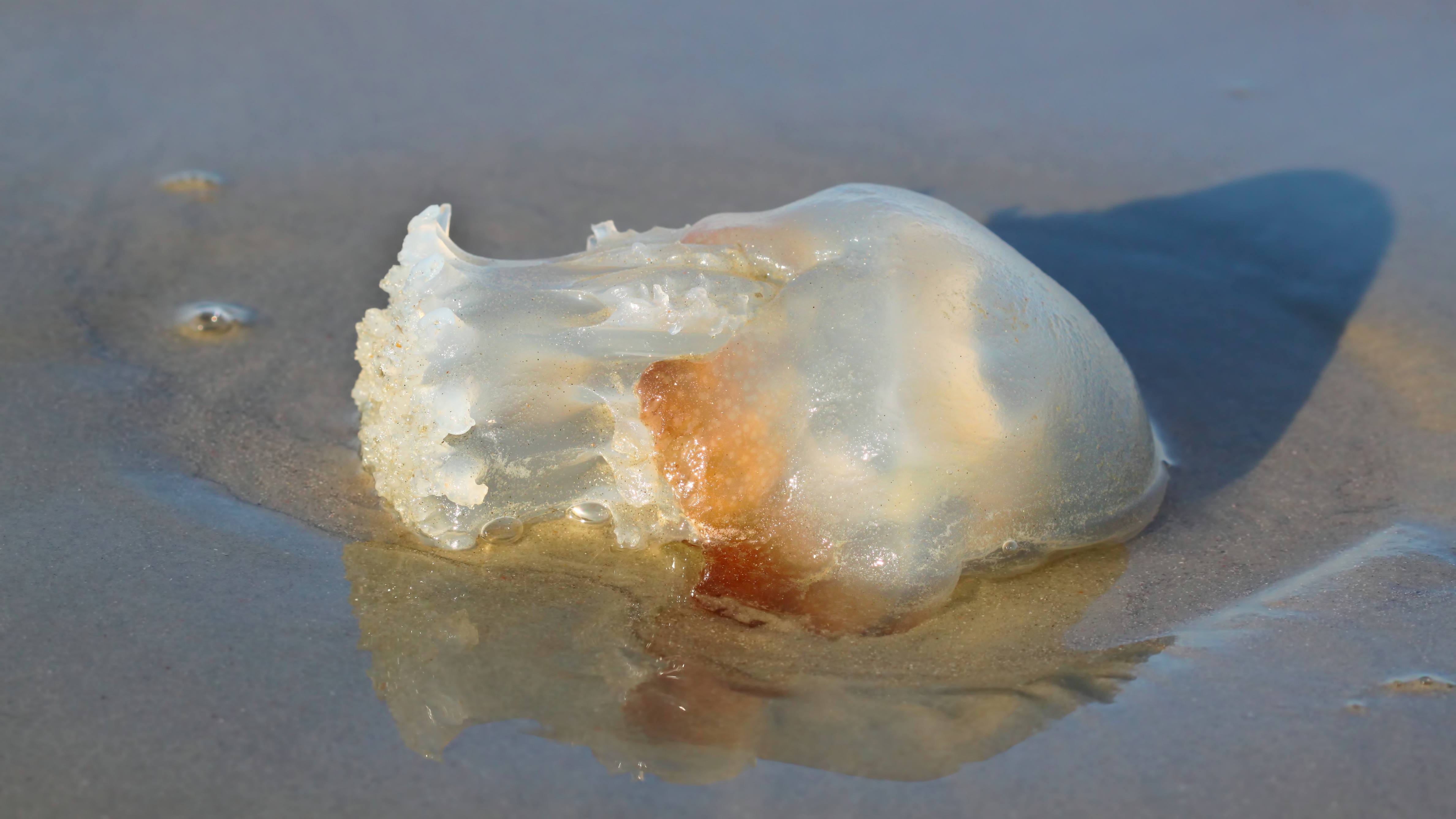
Jellyfish have a mighty sting as hundreds of beachgoers in Florida have discovered. More than 800 people were reported to have been stung recently at Central Florida beaches. Dr. Michael Boniface, an emergency department physician with Mayo Clinic, says most jellyfish that beachgoers encounter in the U.S. contiguous lower 48 states can cause symptomatic and problematic skin irritation but are less likely to have the severe, potentially life-threatening consequences often seen in other parts of the world.
Here's what you need to know if you encounter a jellyfish.
Watch: Dr. Michael Boniface explains jellyfish stings.
Journalists: Broadcast-quality sound bites with Dr. Boniface are in the downloads.
What are jellyfish stings?
“Jellyfish stings actually result from hundreds of tiny, little nematocysts that adhere to your skin from jellyfish tentacles," says Dr. Boniface. "Once these are adhered to your skin, they can continually pump toxin through your skin into the subcutaneous tissue."
What to do if you are stung by a jellyfish
If you are stung by a jellyfish, you should:
- Remove the tentacles.
- Soak the skin in hot water.
- Avoid cold water.
“If you are stung by a jellyfish, you want to gently remove the tentacles, brush off the remaining nematocysts with a credit card and shaving cream," Dr. Boniface says. "And, then, practice warm or hot water immersion."
Dr. Boniface says he recommends warm or hot water emersion because cold water can encourage nematocysts to pump more toxin into the skin. Most jellyfish stings will get better with home treatment.
Common misconceptions about jellyfish stings
"The biggest misconception about jellyfish stings is all the various products out of your kitchen cabinet or things that you can put on the skin to help. I’ve heard people say urinate on the jellyfish sting; pour ammonia; and pour cold, freshwater. And, really, you want to avoid all of these interventions," says Dr. Boniface.
When to seek medical attention
Seek medical attention for a sever reaction, which may include:
- Stomach pain, nausea and vomiting
- Headache
- Stings involving the eye
- Muscle pain or spasms
- Weakness, drowsiness, fainting and confusion
- Difficulty breathing
- Heart problems







